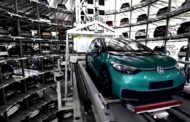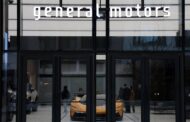Electric vehicle (EV) sales account for more than 81% of Tesla‘s (NASDAQ: TSLA) total revenue at the moment. The company could sell more than 2 million units this year, making it one of the largest EV manufacturers in the world.
But technology investor Cathie Wood thinks artificial intelligence (AI) — not EV sales — is the best reason to own Tesla stock. The company is using AI to develop its autonomous full self-driving (FSD) software, which has already completed billions of real-world miles in beta mode.
Wood’s firm, Ark Investment Management, just released a fresh set of financial models suggesting that EV sales won’t be the driving force behind Tesla’s success for much longer. With the help of AI, Ark predicts 86% of the company’s earnings will come from something else entirely.
Tesla needs to expand beyond the passenger EV business
Doubters were lining up around the block when Tesla stock came public in 2010. Few investors believed its ambitious CEO, Elon Musk, could successfully design, build, and sell EVs. But he proved them wrong, and Tesla’s Model Y was the best-selling car globally in 2023 across all categories.
But Tesla’s core EV business is slowing down due to softening demand and growing competition. The company delivered just 386,810 cars in the first quarter of 2024 (ended March 31), marking a decline of 9% from the year-ago period. Musk hasn’t offered a sales forecast for the 2024 full year, but some analysts think the company will deliver 2.2 million units. This will represent growth of just 22% — far below Musk’s target of growing 50% annually for the foreseeable future.
Tesla had to slash prices by 25.1% throughout 2023 to support demand, and EV prices declined by a further 9% across the industry in the first three months of 2024.
Pricing pressure will only worsen due to the increasingly competitive landscape. Most western manufacturers will struggle to match the production costs of China-based BYD, for example, which just launched an entry-level EV with a price tag of $9,700. In response, Tesla recently unveiled plans to release an entry-level model of its own in 2025, which could start at $25,000.
But selling cars at that price point will squeeze Tesla’s profit margins, so the best path forward is to build other businesses to complement its EVs.
Enter the robotaxi and FSD software
Tesla is gearing up to unveil its robotaxi in August. This is a fully autonomous car designed specifically for ride-hailing (think Uber (NYSE: UBER), except without the human driver). However, its success depends entirely on the widespread release of the company’s FSD software.
Musk says customers have driven over 300 billion miles with the latest version 12 of FSD software. But it remains in beta mode, which means the human driver must stand ready to take the wheel. However, Ark thinks FSD could eventually win regulatory approval, partly based on its safety record so far.
According to data published by Ark, Teslas in FSD mode crash once per 3,200 miles (on average), compared to the U.S. national average of one crash per 192 miles. In other words, an autonomous Tesla might be 16 times safer than your typical American driver.
FSD could transform Tesla’s economics
Musk wants to create a ride-hailing network within Tesla, where the company can deploy robotaxis around the clock to generate revenue. Uber spent $16.6 billion paying its human drivers in the recent quarter alone (its single largest expense), so if Tesla can eliminate that cost, its ride-hailing service will come with a very high profit margin.
But Tesla will also sell FSD software on a subscription basis to owners of its EVs, and Musk has floated the idea of licensing it to other car manufacturers too. Software-as-a-service often comes with high gross profit margins — sometimes as high as 80% — so this could be a game-changer for Tesla’s bottom line, especially as the EV price war heats up.
Ark thinks Tesla will generate $1.2 trillion in revenue in 2029, with 63% coming from the robotaxi business alone. EV sales will drop to just 26% of the company’s total revenue, compared to 81% today.
That shift could supercharge Tesla’s profitability, resulting in $440 billion in earnings before interest, taxes, depreciation, and amortization (EBITDA) in 2029, according to Ark’s models. A whopping 86% of that is expected to come from the robotaxi segment.
Ark’s models are very ambitious
Wall Street estimates that Tesla will generate $98.4 billion in revenue in 2024. To reach Ark’s forecast of $1.2 trillion in annual revenue by 2029, the company will have to grow by 64.9% every year (on average) between now and then.
Remember, Musk himself wants to see Tesla growing by just 50% per year over the long term, and it’s underperforming that target significantly at the moment. Ark’s models appear to be very ambitious from that perspective.
Plus, Uber has 149 million monthly active users on its platform, and they have booked $72.5 billion worth of rides over the last four quarters. So, even if Tesla overtakes Uber to become the world’s largest ride-hailing service, that $72.5 billion in annual bookings won’t go a very long way toward boosting its revenue to $1.2 trillion.
Simply put, I don’t think Ark’s models will reflect reality in 2029. Keep in mind that neither the robotaxi nor FSD software have actually been approved by regulators yet. Even if they do win approval, there is no telling whether people will actually adopt them in the volumes required to meet Ark’s financial predictions.
Should you invest $1,000 in Tesla right now?
Before you buy stock in Tesla, consider this:
The Motley Fool Stock Advisor analyst team just identified what they believe are the 10 best stocks for investors to buy now… and Tesla wasn’t one of them. The 10 stocks that made the cut could produce monster returns in the coming years.
Consider when Nvidia made this list on April 15, 2005… if you invested $1,000 at the time of our recommendation, you’d have $775,568!*
Stock Advisor provides investors with an easy-to-follow blueprint for success, including guidance on building a portfolio, regular updates from analysts, and two new stock picks each month. The Stock Advisor service has more than quadrupled the return of S&P 500 since 2002*.
*Stock Advisor returns as of June 24, 2024
Anthony Di Pizio has no position in any of the stocks mentioned. The Motley Fool has positions in and recommends BYD Company, Tesla, and Uber Technologies. The Motley Fool has a disclosure policy.
Tesla Makes Money Selling Electric Vehicles, But 86% of Its Earnings Might Soon Come From This Instead was originally published by The Motley Fool












